- May 23, 2024
Facts About Macaw Parrots: Discover 10 Colorful Secrets
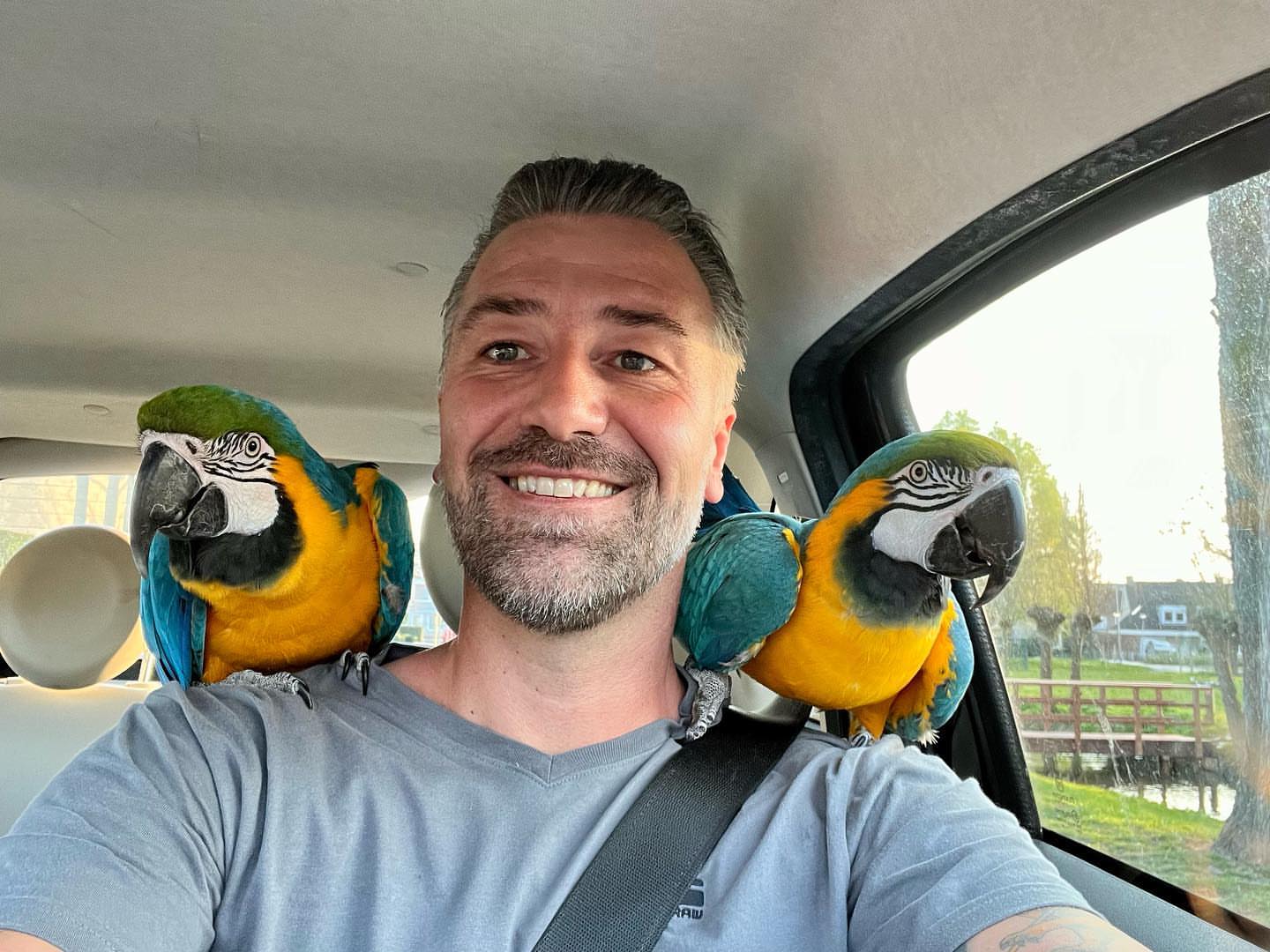
Get ready to be amazed by these incredible facts about wild macaws and their beautiful wings! These colorful creatures are known for their vibrant feathers, playful personalities, and impressive intelligence. Whether you’re a bird enthusiast or simply curious about the natural world, these facts will leave you in awe of these magnificent birds.
In this listicle, we’ll explore the fascinating world of macaw parrots. From their stunning appearance to their unique behaviors, we’ll uncover some lesser-known aspects of these remarkable birds. Discover how they communicate, their exceptional flying abilities, and the surprising ways they bond with their human companions.
Scroll down for reviews of our top picks and dive into the captivating world of macaw parrots. Get ready to be captivated by these extraordinary creatures!
Browse our shop for beautiful birds. Find your perfect parrot companion today
-
Sale Product on sale
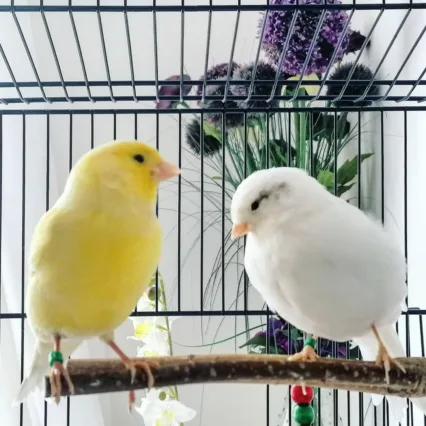 My Name is COCO & LUNA, Male & Female Canaries. 20% Off Today – Don’t Miss Out!
My Name is COCO & LUNA, Male & Female Canaries. 20% Off Today – Don’t Miss Out!$300.00Original price was: $300.00.$240.00Current price is: $240.00. -
Sale Product on sale
 My Name is BAMBI, Female major mitchell cockatoo. 20% Off Today – Don’t Miss Out!
My Name is BAMBI, Female major mitchell cockatoo. 20% Off Today – Don’t Miss Out!$1,150.00Original price was: $1,150.00.$920.00Current price is: $920.00.
Key Takeaways
- Macaws are fascinating birds known for their ability to mimic human speech, making them popular pets for those seeking an interactive companion.
- The vibrant and colorful feathers of macaws not only make them visually stunning but also serve as a form of communication and display during courtship rituals.
- Macaws are monogamous creatures, forming lifelong bonds with their mates, which highlights their loyalty and commitment in the avian world.
- With their powerful beaks, macaws can crack open nuts and seeds effortlessly, showcasing their impressive strength and adaptability in obtaining food.
- Macaws are highly social birds, thriving in the company of others, making them ideal pets for individuals who enjoy a lively and interactive household companion.
- Known for their intelligence, macaws possess problem-solving skills and can be trained to perform various tricks and tasks, providing mental stimulation and entertainment.
- Macaws have zygodactyl feet, enabling them to grasp and manipulate objects with ease, a feature that contributes to their dexterity and agility.
- Macaws have an impressive lifespan, with some species living up to 80 years, making them long-term companions that require commitment and care.
- Native to the Americas, macaws play a crucial role in seed dispersal within their ecosystems, contributing to the maintenance and diversity of plant life.
1. Macaws can mimic human speech.
Macaws are known for their incredible ability to mimic human speech, making them one of the most fascinating and sought-after parrot species. Here are some key facts about macaws and their unique talent:
- Unparalleled Vocal Skills: Macaws possess a remarkable vocal range and clarity, allowing them to imitate human speech with astonishing accuracy. They can learn and repeat words, phrases, and even entire conversations.
- Cognitive Abilities: The ability to mimic human speech showcases the high cognitive capabilities of macaws. These intelligent birds can understand the meaning behind the words they imitate, demonstrating their comprehension skills.
- Social Interaction: Macaws use their mimicry skills as a means of communication and social bonding. In the wild, they imitate the calls of other birds to establish territory or attract mates.
- Distinctive Voices: Each macaw has its own unique voice, just like humans. Some macaws have deep, booming voices, while others have softer or higher-pitched tones.
- Training Potential: Macaws can be trained to speak specific words or phrases through positive reinforcement techniques. With patience and consistency, they can expand their vocabulary and engage in interactive conversations with their human companions.
Macaws’ ability to mimic human speech is not only entertaining but also serves as a testament to their intelligence and adaptability. Whether it’s mimicking your favorite phrase or engaging in meaningful conversations, these colorful parrots never fail to captivate us with their linguistic talents.
2. Macaw feathers are vibrant and colorful.
Macaw parrots are known for their stunning and vibrant feathers, which make them stand out among other bird species. These feathers come in a wide range of colors, including brilliant blues, vibrant yellows, fiery reds, and lush greens. The vivid hues of their plumage are truly mesmerizing and captivating.
One unique feature of macaw feathers is their iridescence. This means that when light hits the feathers at different angles, they reflect various colors, creating a dazzling display. The combination of vibrant pigments and iridescent properties makes macaw feathers truly breathtaking.
Not only are macaw feathers visually striking, but they also serve important functions for the birds. The bright colors help macaws attract mates during courtship displays and communicate with other members of their flock. The long and sturdy flight feathers enable macaws to soar through the air with grace and agility.
3. Macaws mate for life.
Macaws are known for their vibrant feathers and striking appearance, but did you know that they also have unique mating habits? One fascinating fact about macaws is that they mate for life, forming strong and lasting bonds with their partners.
This monogamous behavior sets macaws apart from many other bird species. Once a pair of macaws find each other, they stay together for the rest of their lives. This commitment ensures a stable and supportive environment for raising their young.
Not only do macaws mate for life, but they also engage in elaborate courtship rituals to strengthen their bond. These rituals often involve vocalizations, displays of affection, and intricate dances. By engaging in these behaviors, macaws reinforce their partnership and maintain a strong emotional connection.
This lifelong commitment is not only heartwarming but also beneficial for the survival of the species. It allows macaws to form stable families and provide consistent care to their offspring. By staying together, macaw pairs can successfully raise multiple generations of young birds.
4. Macaws have powerful beaks.
Macaws are known for their vibrant plumage and playful personalities, but one of their most striking features is their powerful beaks. These impressive beaks are not only visually stunning, but they also serve a variety of important functions.
First and foremost, macaw beaks are incredibly strong. They have the ability to crack open tough nuts and seeds with ease, allowing these birds to access the nutrient-rich contents inside. In fact, some macaw species have been observed cracking open Brazil nuts, which are notoriously hard to open even for humans!
Macaw beaks are used for communication. These birds can produce a wide range of vocalizations, and their beaks play a crucial role in shaping the sounds they make. By manipulating the position of their beak and tongue, macaws can create unique calls and squawks that help them communicate with other members of their flock.
Furthermore, macaw beaks are essential for climbing and exploring their environment. These birds use their strong beaks to grip onto branches and investigate objects around them. This allows them to navigate through the dense foliage of their natural habitats with ease.
5. Macaws are social birds.
Macaws are known for their vibrant colors and striking appearance, but there’s more to these magnificent creatures than meets the eye. One of their most fascinating traits is their highly sociable nature. These birds thrive on social interaction and form strong bonds with their flock members.
Socializing is a crucial aspect of a macaw’s life, as it allows them to communicate, learn from each other, and establish hierarchies within their group. They engage in various social behaviors such as vocalizations, grooming, and playing together. This socialization not only helps them build relationships but also promotes mental stimulation and overall well-being.
In the wild, macaws can be found in large flocks that can consist of hundreds of individuals. They fly together, forage for food together, and even raise their young collectively. This communal lifestyle provides them with safety in numbers and enhances their chances of survival.
Macaws’ sociability extends beyond their own species. They often interact with other bird species and even mammals in their environment. These interactions create unique opportunities for observation and learning from different animals.
Understanding the significance of socialization for macaws is essential when considering them as pets. Providing ample opportunities for social interaction through playtime, training sessions, and spending quality time with them can greatly contribute to their happiness and well-being.
ext time you admire the vibrant plumage of a macaw, remember that behind those beautiful feathers lies a highly social creature that thrives on connection and companionship.
6. Macaws are intelligent creatures.
Macaws are known for their stunning beauty and vibrant plumage, but their intelligence is equally impressive. These majestic birds possess remarkable cognitive abilities that set them apart from other species.
1. Problem-solving skills: Macaws have the ability to solve complex problems and puzzles. They can figure out how to open locks, untie knots, and even manipulate objects to get what they want. Their intelligence allows them to adapt quickly to new situations and challenges.
2. Vocal mimicry: One of the most fascinating aspects of macaw intelligence is their vocal mimicry. These birds can imitate a wide range of sounds, including human speech, musical tunes, and even other animal calls. This skill demonstrates their ability to learn and imitate complex patterns of sound.
3. Emotional intelligence: Macaws also possess a high level of emotional intelligence. They can recognize different emotions in humans and respond accordingly. For example, they can sense when their owners are sad or upset and offer comfort by cuddling or making soothing sounds.
In addition to these unique features, macaws have been observed displaying problem-solving skills in the wild, such as using tools to obtain food or navigate their environment.
Macaws’ exceptional intelligence makes them fascinating companions and highlights their adaptability in various environments.
7. Macaws have zygodactyl feet.
Macaws are known for their vibrant colors and impressive size, but one of their most unique features is their zygodactyl feet. This means that macaws have two toes pointing forward and two toes pointing backward, allowing them to easily grasp onto branches and climb with precision.
This specialized foot structure gives macaws a significant advantage when navigating their natural habitat in the rainforests. With their strong grip, they can securely perch on tree branches, even in windy conditions. Their zygodactyl feet enable them to manipulate objects and use their claws effectively for feeding and grooming.
The zygodactyl feet of macaws also play a crucial role in their ability to fly. By using their feet as an additional source of stability, macaws can maintain balance while soaring through the air. This adaptation allows them to perform impressive aerial acrobatics and navigate through dense vegetation with ease.
8. Macaws can live up to 80 years.
Macaws are known for their vibrant feathers and playful personalities, but did you know that they can live up to 80 years? This incredible lifespan sets them apart from many other bird species.
These long-living birds have captured the fascination of researchers and bird enthusiasts alike. It’s not uncommon for macaws to become cherished family pets for multiple generations. Their longevity allows them to form deep bonds with their human companions, creating lifelong connections.
The impressive lifespan of macaws is due to several factors. Firstly, they receive excellent care in captivity, including a nutritious diet and regular veterinary check-ups. Secondly, macaws possess unique adaptations that help them thrive in their natural habitats, such as strong beaks and powerful wings.
With an average lifespan of 50-60 years in the wild and up to 80 years in captivity, macaws have plenty of time to make lasting impressions on those around them. They become beloved members of families and communities, providing joy and companionship for decades.
9. Macaws are native to the Americas.
Macaws are majestic and colorful parrots that are native to the Americas. Here are some fascinating facts about these beautiful birds:
- Diversity: There are over 17 different species of macaws, each with its own unique colors and characteristics. From the vibrant Scarlet Macaw to the striking Blue-and-Yellow Macaw, these birds are a sight to behold.
- Longevity: Macaws have an impressive lifespan, often living for 50-60 years in captivity and even longer in the wild. This longevity allows them to form strong bonds with their human caretakers and become lifelong companions.
- Intelligence: These parrots are highly intelligent creatures. They have the ability to mimic human speech and can be trained to perform tricks and solve puzzles. Their intelligence makes them engaging pets that can provide endless entertainment.
- Social Creatures: Macaws are incredibly social animals and thrive in environments where they can interact with others. They form strong pair bonds with their mates and enjoy the company of their flock members.
- Conservation Concerns: Unfortunately, many macaw species are facing threats due to habitat loss and illegal pet trade. Conservation efforts are crucial to protect these magnificent birds and ensure their survival for future generations.
Macaws truly embody the beauty and diversity of nature, making them captivating creatures that deserve our admiration and protection.
10. Macaws play a crucial role in seed dispersal.
Macaws are not just beautiful birds; they also serve an essential ecological function as seed dispersers. With their strong beaks and powerful flight, macaws are capable of cracking open hard-shelled fruits and nuts, allowing the seeds to be released into the environment. As they fly from tree to tree, macaws unintentionally drop seeds, helping to spread plant life across vast distances.
This unique behavior has significant implications for forest regeneration and biodiversity. By dispersing seeds, macaws contribute to the growth of new trees and plants in different areas, promoting genetic diversity and ensuring the survival of various species. In fact, studies have shown that macaw populations positively impact forest ecosystems by facilitating seed dispersal for a wide range of plant species.
Furthermore, macaws are known to prefer certain types of fruits and nuts, which influences their feeding habits and ultimately determines which seeds they disperse. This selective behavior plays a crucial role in shaping plant communities and maintaining a balanced ecosystem.
Summary
In conclusion, macaw parrots are fascinating creatures with a multitude of unique characteristics. They possess the remarkable ability to mimic human speech, adding a touch of entertainment to their vibrant and colorful feathers. These social birds form lifelong bonds with their mates and exhibit intelligence through their powerful beaks and zygodactyl feet. Macaws also play a vital role in seed dispersal, contributing to the ecosystem they inhabit. With a lifespan of up to 80 years, these native birds of the Americas leave a lasting impact on both their environment and those fortunate enough to witness their beauty.
To further explore the world of macaw parrots, consider visiting sanctuaries or wildlife reserves where you can observe these magnificent creatures up close. Engage in educational programs or support conservation efforts aimed at protecting their natural habitats. By taking action, you can contribute to the preservation of these extraordinary birds and ensure that future generations can appreciate their awe-inspiring presence. So go ahead, dive into the world of macaws and unlock the wonders that await you!
Tags
What do you think?
Related Articles
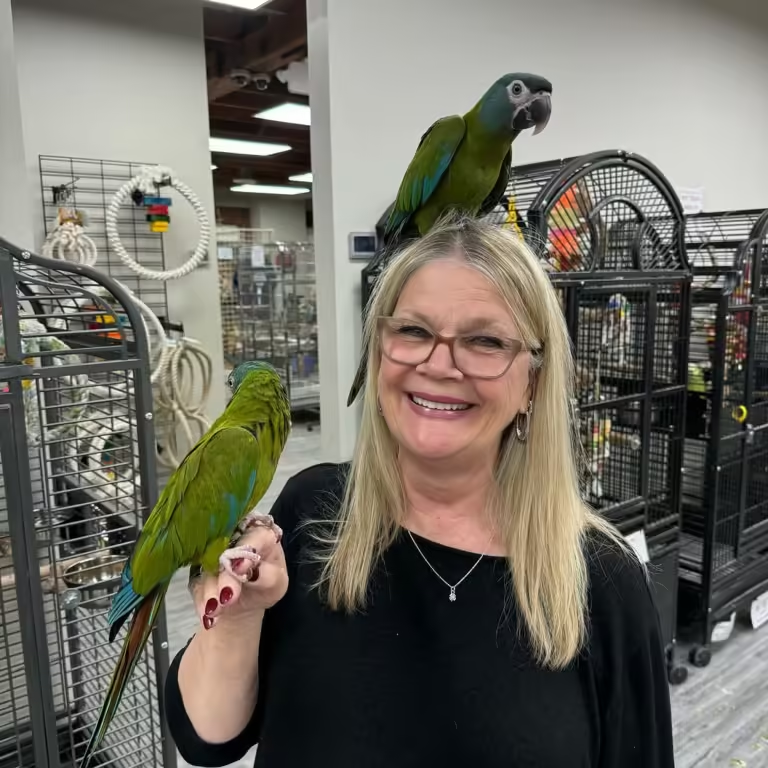
Find Parrots for Sale in Aurora IL: Top 5 Must-Visit Spots
Finding the perfect parrot in Aurora, IL, is an exciting adventure for bird lovers. This city offers various options for
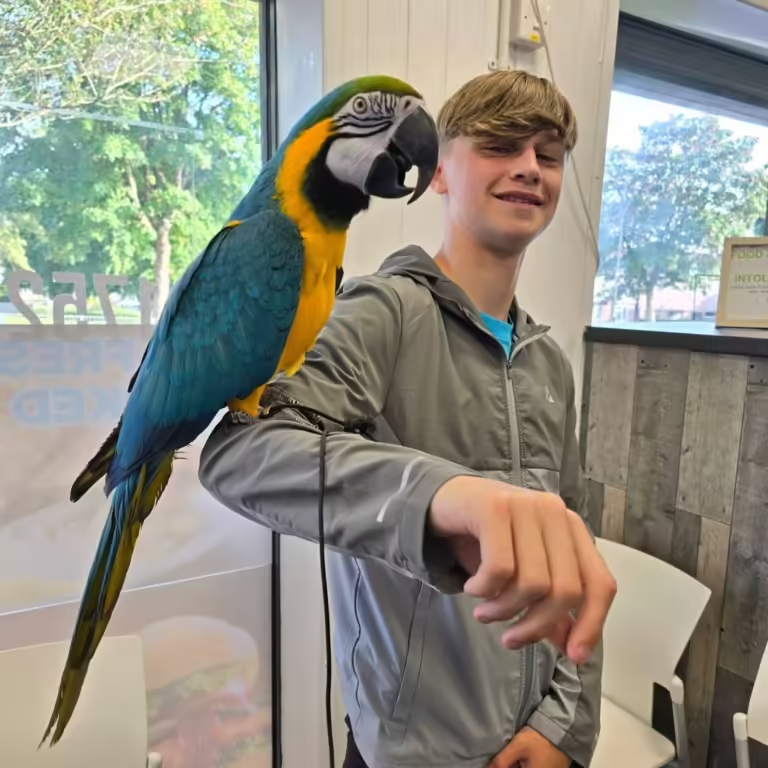
Find Parrots for Sale in Trenton NJ: Top 5 Must-See Spots!
Finding the perfect parrot can be a fun adventure. Trenton, NJ, offers plenty of options for bird lovers. From local
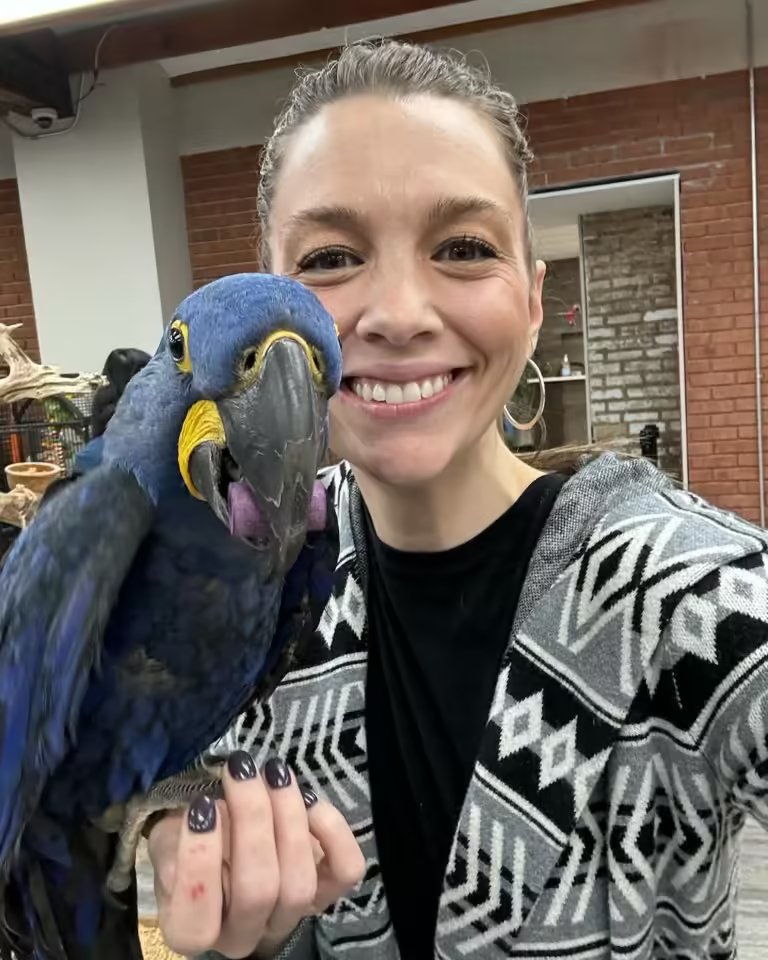
Find Parrots for Sale in Woodbridge Township NJ: Top 5 Must-See Spots!
Finding the perfect parrot can be a fun adventure. Woodbridge Township, NJ offers plenty of options for bird lovers. From


